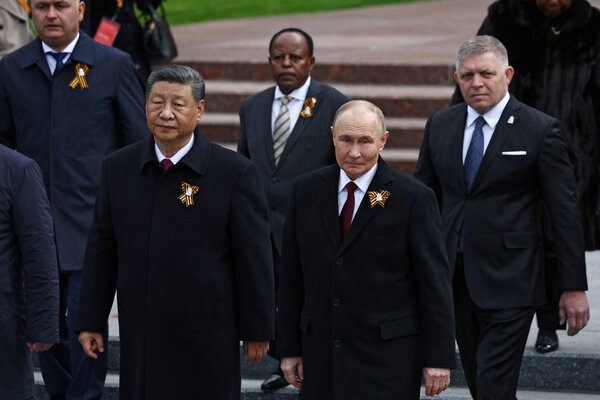Russian counterintelligence agents are analyzing data from the popular Chinese messaging and social media app WeChat to monitor people who might be in contact with Chinese spies, according to a Russian intelligence document obtained by The New York Times.The disclosure highlights the rising level of concern about Chinese influence in Russia as the two countries deepen their relationship. As Russia has become isolated from the West over its war in Ukraine, it has become increasingly reliant on Chinese money, companies and technology. But it has also faced what the document describes as increased Chinese espionage efforts.The document indicates that the Russian domestic security agency, known as the F.S.B., pulls purloined data into an analytical tool known as “Skopishche” (a Russian word for a mob of people). Information from WeChat is among the data being analyzed, according to the document.Read MoreRussian intelligence officers are increasingly concerned about Chinese espionage as the two countries grow closer.Secret Russian Intelligence Document Shows Deep Suspicion of ChinaJune 7, 2025How We Obtained and Vetted a Russian Intelligence DocumentJune 7, 2025The document offers insights into the espionage tactics of two authoritarian governments that are preoccupied with surveillance.According to the document, the system processes detailed data on WeChat users, including account logins, contact lists and message archives, some of which are extracted from phones seized from people of interest to Russia’s spy hunters.The tool is used to scrutinize the data trail of “people using the Chinese messenger WeChat to talk to representatives of the PRC intelligence services,” the document says, using the abbreviation for the People’s Republic of China.[…]WeChat, owned by the Chinese tech giant Tencent, is one of the most widely used digital platforms in the world, mostly concentrated in China and among Chinese communities. It functions as an all-in-one tool that combines messaging, mobile payments, social networking and government services. The app has over 1.4 billion users globally, according to Tencent financial disclosures.[…]WeChat added some limited encryption features in 2016, according to Mona Wang, a research fellow at the University of Toronto’s Citizen Lab. But the security improvements still fall short of the encryption offered by other messaging apps like Signal or WhatsApp.It is unclear why Chinese intelligence officers would use WeChat to communicate with sources, given its lack of end-to-end encryption. But sources or potential recruits may not know they are communicating with spies, who often pose as diplomats and strike up casual conversations at first.[…]
Source: How Russian Spies Are Analyzing Data From China’s WeChat App – The New York Times

Robin Edgar
Organisational Structures | Technology and Science | Military, IT and Lifestyle consultancy | Social, Broadcast & Cross Media | Flying aircraft
robin@edgarbv.com
https://www.edgarbv.com


